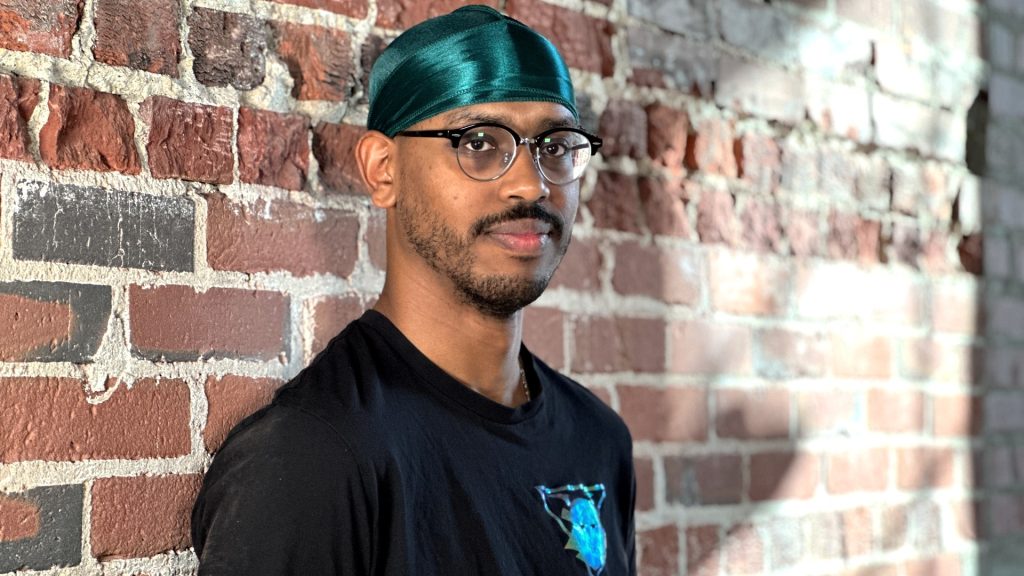Conversation with Sudanese-born filmmaker part of Winnipeg’s Black Film Collective
Posted October 26, 2024 1:39 pm.
Last Updated October 29, 2024 9:10 am.
Ahmed Al Noor is a filmmaker who immigrated from Sudan to Winnipeg when he was four years old. He’s part of Winnipeg’s Black Film Collective, which advocates for the creation of Black cinematic art from the Prairies.
Al Noor says his first short film, “Stole Youth,” is just as much his story as it is a culmination of voices from the Black Film Collective.
CityNews reporter Joanne Roberts: This career that you have now embarked on, you told me started when you were very young.
Ahmed Al Noor: “A lot of my earliest memories of when (my mom and I) first immigrated to Canada are watching The Movie Channel with my mom. Subconsciously, using it to learn English but then just enjoying that quality time together and just the magic of motion pictures. … We still enjoy getting together, watching movies together, so it’s been a lifelong passion that slowly transformed into this creative pursuit.”
JR: What is it about movies that drew you to them?
AAN: “I think there’s, for lack of a better term, you know, have to lean on the cliché, but there’s a magic to movies that was able to transport (my mom and I) anywhere. When we didn’t have all the resources in the world available to us, watching The Movie Channel could take us almost anywhere and we would go on all these adventures together with these characters. The connection that we were able to build with what we were seeing on screen also just (reinforced) that own little bond, that quality time that we were able to share. Very tough to put your finger on it, but you know it when you see it.”

JR: Tell me about this film you’ve created.
AAN: “I just screened my first short film. It’s called “Stole Youth” … It’s a simple story just about this unassuming thief who comes to terms with all of their emotions in the wake of their first heist, which resonated with me. I’ve always liked heist movies. Having an all-Black cast, a predominantly Black crew and all the ways that we’re overlooked particularly in the film industry and reclaiming that, having some autonomy over our stories and being able to share that in the story was something that was really special to me as the writer/director. Everybody who was involved, it really resonated with them. Their passion also helped to build the story up.
“We submitted to the (University of Winnipeg) Film Fest. That is the first film festival that I submitted to, that I got accepted to. It was such a special experience having my first screening, seeing a project that I made from a simple idea that I had in my head. Writing it down. Getting everybody together. Spending all night shooting it, seeing it come to life and then playing on a big screen with an audience. Getting all of their reactions in real-time, it was super, super fulfilling and inspiring and I can’t wait to do the next one.”

JR: I think this is a huge achievement. Do you think that this industry has opened up to creatives that perhaps, 10 or 20 years ago would not have been able to do what you do?
AAN: “Absolutely. When I was really young, I thought maybe when I grow up I’ll get involved in film and that could be something. Definitely part of it was my own self-doubt and insecurity. It’s still surreal even calling myself a filmmaker now but the ways that I’ve interacted with the industry in this last year in a bit, and seeing all the groups out there like the Black Screen Office, the Black Film Collective, all the different ways that we have a new voice in this industry, we’re aware of the imbalances in whose stories get told and the ways in which they’re told. I am so tired of seeing Black people suffering in major motion pictures. There aren’t enough Black rom coms, you know what I mean?
“So having these conversations, we were recently at the (Black Screen Office) tour where they were stopping in major cities all across Canada and being in a room here in Winnipeg, surrounded by other Black people in the industry, talking about these same things and championing the change that we want to see is very, very inspiring.”

JR: So does this mean you don’t think the industry is just opening up in Winnipeg – it’s opening up everywhere?
AAN: “Ideally! You know, from your lips to God’s ears. The conversations that are being had aren’t just happening here. … There is this united front that I am very hopeful for and we’ll see how it goes. Things seem to be on an upward trajectory and it has me very hopeful.”
JR: You also won some awards yesterday as well (for Stole Youth). … What does that mean to you?
AAN: “Stole Youth won the Audience Choice Award at the University of Winnipeg Film Fest. We also won Best Cinematographer for our director of photography, Cyril Karwa, and it is surreal. My head is still in the clouds, I can’t believe. It was just a shot in the dark, you know. Even finishing it was a huge, herculean effort with so many different people. It’s a miracle that this movie is here and it’s been seen by people and to have won multiple awards from a film festival with a jury and all the bells and whistles, it’s huge for us. It’s huge for everybody at the Black Film Collective.”








